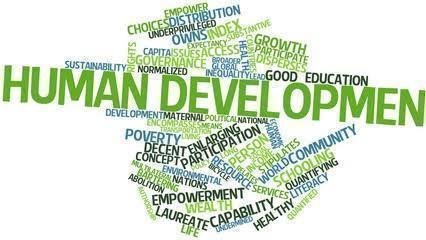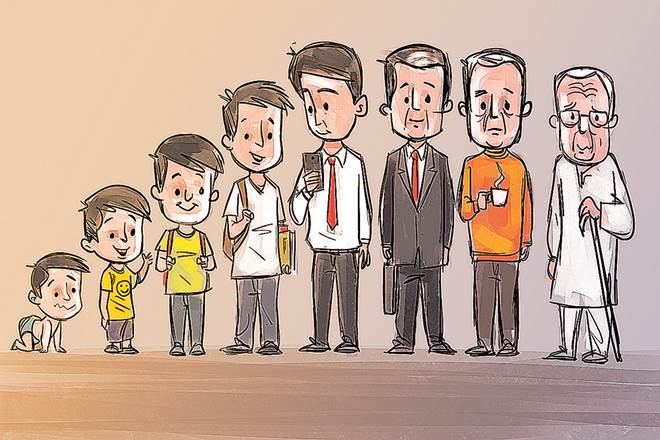Contents
ToggleHuman development encompasses the process through which individuals, communities, and societies enhance their capacities, improve their quality of life, and achieve their full potential. It is a multidimensional concept, involving not only economic growth but also social progress, education, health, and the fulfillment of fundamental human rights. This article delves into the essence of human development, its critical components, and the challenges and opportunities associated with it in the modern era.
Defining Human Development

Human development focuses on expanding the range of opportunities available to individuals and improving their overall well-being. It is rooted in the idea that development should center on people, not just economies. This perspective prioritizes the enhancement of human capabilities, including the ability to lead a long and healthy life, access knowledge, and achieve a decent standard of living.
The concept gained prominence through the United Nations Development Programme (UNDP), which introduced the Human Development Index (HDI) as a measure to assess progress. HDI evaluates development using indicators like life expectancy, education, and income levels, providing a more comprehensive view than economic metrics alone.
Key Components of Human Development
Human development spans several interconnected dimensions, each contributing to the overall progress of individuals and societies. These components include:
- Health and Well-being
Good health is fundamental to human development, enabling individuals to participate fully in society. Access to quality healthcare, nutritious food, clean water, and sanitation are essential for maintaining physical and mental well-being. Moreover, addressing disparities in health outcomes is crucial for equitable development. - Education and Knowledge
Education empowers individuals, fostering critical thinking, innovation, and economic participation. It serves as a foundation for personal growth and societal progress. Ensuring access to quality education at all levels, including vocational training and lifelong learning opportunities, is vital for sustainable human development. - Economic Stability and Opportunity
Economic factors play a significant role in human development. Access to decent work, fair wages, and economic resources enables individuals to meet their needs and aspirations. Promoting inclusive economic growth and reducing income inequalities are key goals in achieving sustainable development. - Social and Cultural Inclusion
A sense of belonging and active participation in society are critical for personal and collective well-being. This includes respecting cultural diversity, protecting human rights, and ensuring gender equality. Addressing discrimination and fostering inclusive communities strengthen social cohesion and resilience. - Environmental Sustainability
The environment is deeply intertwined with human development. Sustainable use of natural resources, mitigation of climate change, and preservation of ecosystems are essential for maintaining the planet’s capacity to support current and future generations. Integrating environmental concerns into development policies is imperative.
Challenges to Human Development

While significant progress has been made globally, numerous challenges continue to hinder human development. These include:
- Inequality and Poverty
Economic and social disparities remain widespread, with millions of people living in poverty. Inequalities in income, education, and healthcare access disproportionately affect marginalized groups, creating barriers to development. - Climate Change and Environmental Degradation
Climate change poses a severe threat to human development, with its impacts disproportionately affecting vulnerable populations. Rising sea levels, extreme weather events, and resource scarcity undermine livelihoods and exacerbate inequalities. - Global Health Crises
The COVID-19 pandemic highlighted vulnerabilities in healthcare systems and socio-economic structures. It reversed years of progress in health, education, and income growth, emphasizing the need for resilient systems to withstand future shocks. - Conflicts and Displacement
Armed conflicts, political instability, and forced displacement disrupt lives and erode development gains. Millions of people are displaced due to wars, persecution, and natural disasters, facing challenges in accessing basic services and opportunities. - Technological Gaps
While technology has the potential to drive development, unequal access to digital resources perpetuates inequalities. Bridging the digital divide is essential to ensure that technological advancements benefit everyone.
Strategies for Enhancing Human Development
Promoting human development requires a coordinated effort pulitoto at local, national, and global levels. Effective strategies include:
- Investing in Education and Skills
Providing universal access to quality education and equipping individuals with relevant skills enhances their capabilities and employability. Tailored programs targeting disadvantaged groups can reduce disparities and promote inclusivity. - Strengthening Healthcare Systems
Building robust healthcare infrastructure, improving access to services, and addressing health inequities are essential steps. Preventive care, health education, and support for mental health are equally important. - Advancing Gender Equality
Empowering women and girls through education, economic participation, and political representation contributes significantly to development. Gender equality not only benefits individuals but also strengthens communities and economies. - Fostering Economic Inclusion
Implementing policies that promote fair wages, social protection, and access to financial services ensures that economic growth translates into improved living standards. Supporting small businesses and entrepreneurship can also drive local development. - Promoting Environmental Sustainability
Adopting sustainable practices in agriculture, industry, and urban planning helps mitigate environmental challenges. Encouraging renewable energy, conservation efforts, and eco-friendly technologies supports long-term development goals. - Leveraging Technology for Development
Harnessing technology to improve education, healthcare, and governance can accelerate progress. Expanding access to digital resources, particularly in underserved areas, is vital for equitable development.
The Role of International Cooperation
Global challenges such as climate change, pandemics, and conflicts require collaborative solutions. International cooperation plays a crucial role in addressing these issues and fostering human development. Partnerships between governments, non-governmental organizations, and international agencies are essential for mobilizing resources, sharing knowledge, and implementing effective programs.
Human Development in the Modern Context
In today’s interconnected world, human development takes on new dimensions. The rapid pace of technological advancements, shifting demographic trends, and the ongoing effects of globalization create both opportunities and challenges. Policies and initiatives must adapt to these changes to ensure sustained progress.
The inclusion of marginalized voices, emphasis on sustainable practices, and commitment to equity and justice are fundamental to achieving comprehensive human development. By prioritizing these principles, societies can create an environment where individuals thrive and contribute to collective well-being.
Conclusion
Human development is a dynamic and multifaceted process that extends beyond economic growth. It encompasses health, education, social inclusion, and environmental sustainability, aiming to improve the quality of life for all. Despite ongoing challenges, targeted strategies and international cooperation offer pathways to progress.
By placing people at the center of development efforts and fostering equitable opportunities, societies can unlock human potential and build a future where everyone can flourish.




